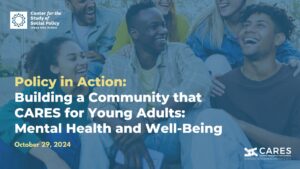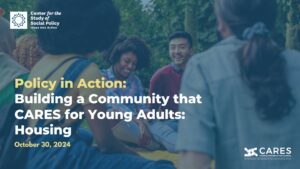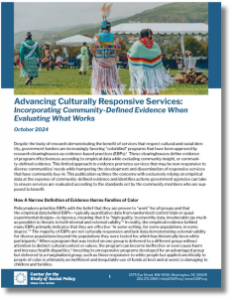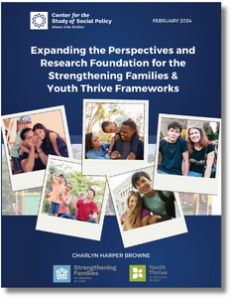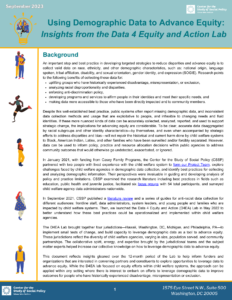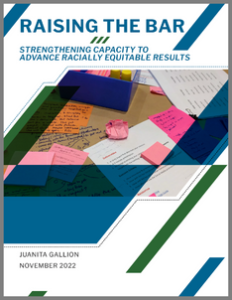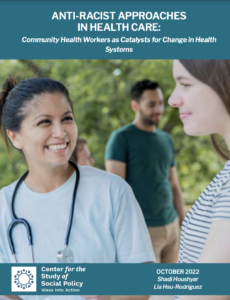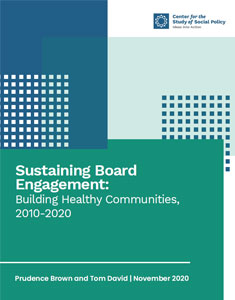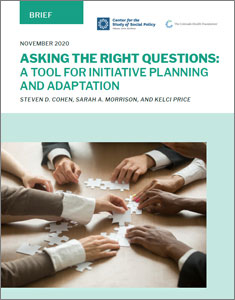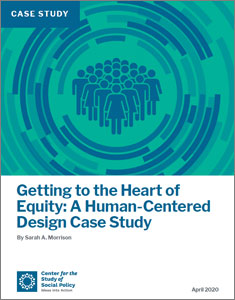Hosted by the CARES Initiative and the Center for the Study of Social Policy (CSSP), this session discussed youth-centered policy recommendations for mental health and well-being, co-designed with young people who have transitioned out of foster care. During the conversation, we heard reflections on the importance of policies for mental health and well-being and the Atlanta CARES mental health and well-being policy agenda.
This event was part one of a two-part discussion on reimagining a future where public policy empowers young people to pursue their goals and live fully.
Featured Speakers:
- Malaka "Mali" Y. Nzinga, CHES, Program Manager in the National Center for Primary Care at Morehouse School of Medicine
- Dimple Desai, MSW, Senior Policy Analyst, Voices for Georgia's Children
- Jada Brigman, CARES Ambassador, Atlanta
- Tiffany Cannon, CARES Ambassador, Atlanta
- Shadi Houshyar, Senior Associate, Center for the Study of Social Policy
